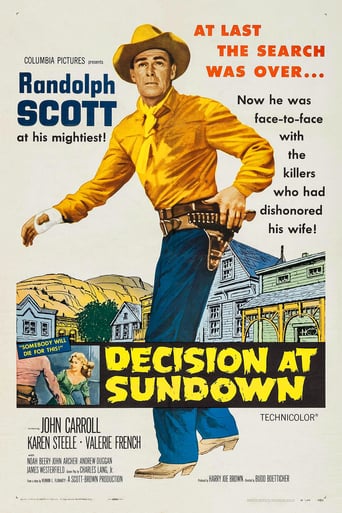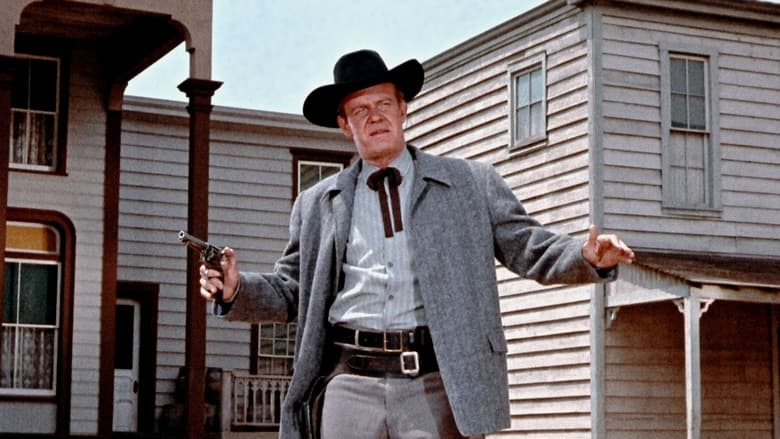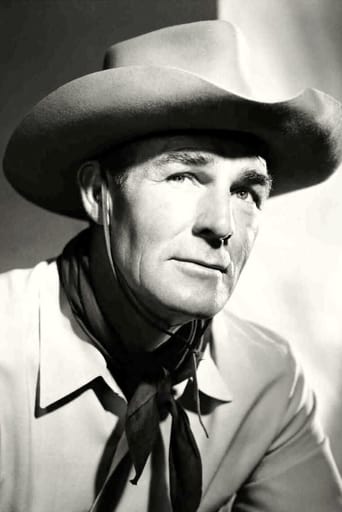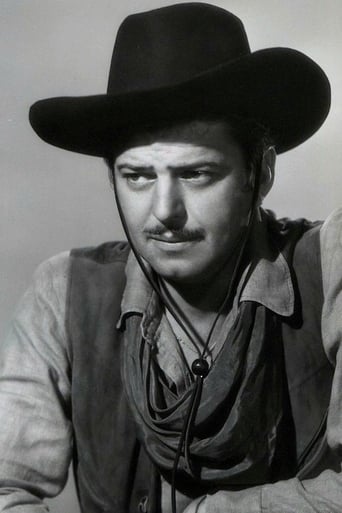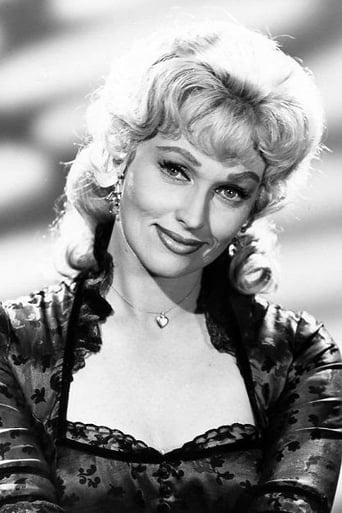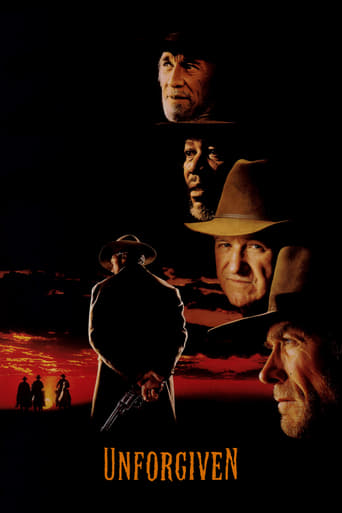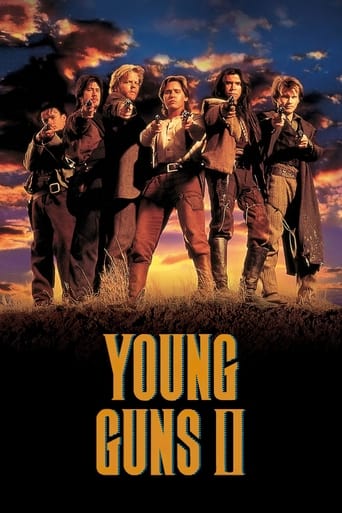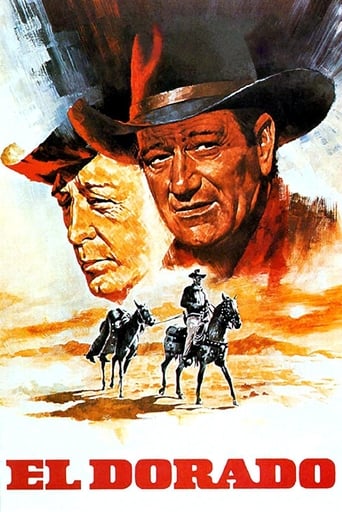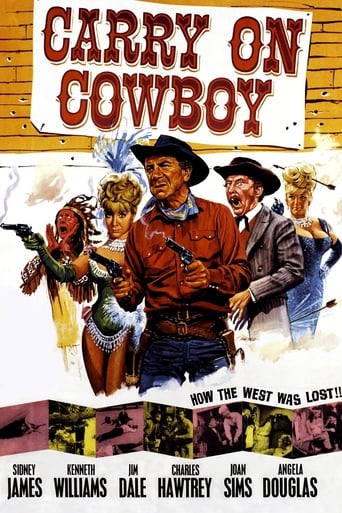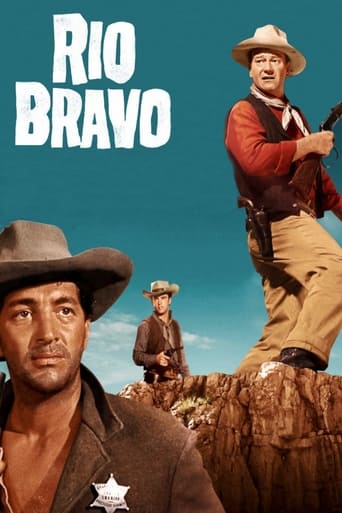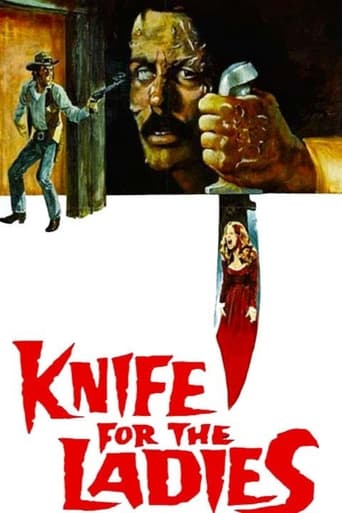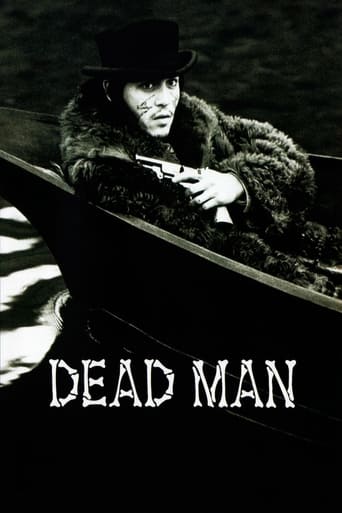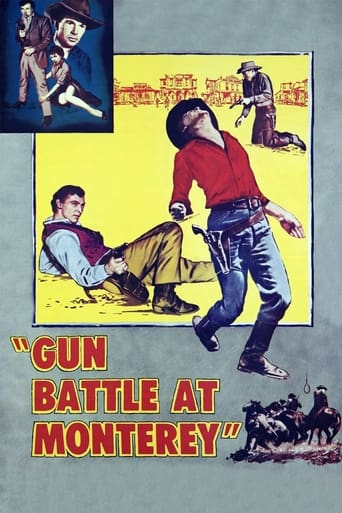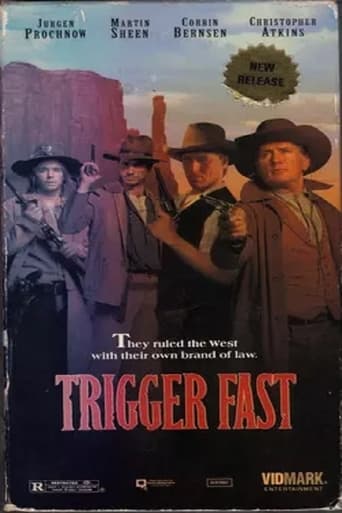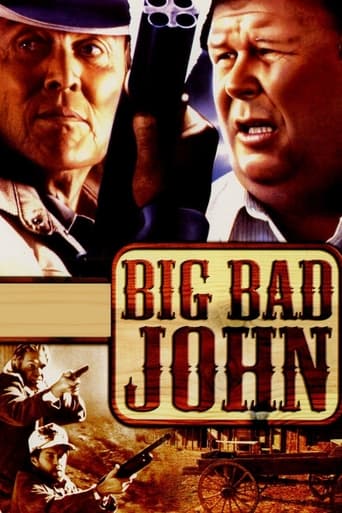Decision at Sundown (1957)
A man and his partner arrive at a small Western town to kill its most powerful man because the former blames him for his wife's death.
Watch Trailer
Free Trial Channels
Cast


Similar titles
Reviews
Yawn. Poorly Filmed Snooze Fest.
Memorable, crazy movie
Good concept, poorly executed.
Easily the biggest piece of Right wing non sense propaganda I ever saw.
While the western genre is not my favourite one of all film genres (not sure which one is my favourite due to trying to appreciate them all the same), there is a lot of appreciation for it by me. There are a lot of very good to great films, with the best work of John Ford being notable examples.In the late 50s, starting in 1956 with 'Seven Men from Now' and right up to 1960 with 'Comanche Station', lead actor Randolph Scott collaborated with director Budd Boetticher in seven films. For me, 1957's 'Decision at Sundown' is one of their weakest, even a strong contender for their weakest. By all means it is a long way from terrible, it has a lot of great elements and is actually pretty decent. It just isn't in the same league as the wonderful 'Seven Men from Now' and 'The Tall T' and doesn't have enough of what made those two so good.Starting with the strengths, while not the best-looking of their outings, being smaller in scale and slightly too compact in its setting, 'Decision at Sundown' still looks pleasing. It is very nicely filmed, with some nice colour and atmosphere, and handsomely designed, it just lacks the visual grandeur of their best collaborations. The music has presence and fits nicely, while not being intrusive.Boetticher directs efficiently and mostly the film goes at a pace that isn't pedestrian. Numerous parts are suspenseful and fun, with some well choreographed action and some moral complexity. The ending is unusual and unexpected, and very effective. Scott brings likeability, charisma and intensity to his role and he is well supported by Karen Steele (oozing glamour and charm), Noah Beery Jr (enjoying himself immensely and having the best of the fun moments), John Archer (nice authority) and Andrew Duggan (suitably snake-like).However, Valerie French is rather bland and colourless in an underwritten role and lacking the charm and sometimes touching chemistry of Steele. John Carroll underplays his fairly one-dimensional villain, he's no Lee Marvin, Richard Boone or Claude Akins.The script is too wordy, lacking the meat and tautness of the scripts of the best Scott/Boetticher films, and can preach and be too basic to make the most of its complex themes. There is not enough depth to the characters, with only Scott's hero being developed enough and even then his motivation should have been explored more and more gripping. The story has a lot of great moments, but there is also some credibility straining, overload of simplicity and lack of tautness.In conclusion, decent but had the potential to be much better. 6/10 Bethany Cox
"Decision at Sundown" marked the third of seven collaborations between star Randolph Scott and famed director Budd Boetticher. In this one Scott plays Bart Allison a grim hate filled revengeful hombre with little in the way of redeeming qualities.Allison and his partner Sam (Noah Beery Jr.) arrive in the town of Sundown where Allison is seeking one Tate Kimbrough (John Carroll) whom he believes is responsible for his wife's death. Kimbrough as it happens, is to be married this very day to Lucy Summerton (Karen Steele) the daughter of one of the town's leading citizens Charles Summerton (John Litel). We learn that Kimbrough has been involved with saloon girl Ruby Jones (Valerie French) who pleads with him not to proceed with the wedding.At the church as the ceremony begins, Allison informs Kimbrough that he plans to kill him over the death of Mary, Allison's wife. Allison and Sam then flee with Sheriff Swede Hansen (Andrew Duggan) and his men in pursuit. They are forced to hole up in the livery stable. Hansen and his men, which include Spanish (H.M. Wynant) and Irv (Bob Steele), cannot force Allison and Sam to surrender.Kimbrough forces Summerton to try and negotiate a settlement without success. Sam tries to tell Allison that his wife was "sleeping around" during his absence at the Civil War and that Kimbrough was only one of many whereupon Allison slugs Sam and becomes even more enraged throwing the faithful Sam out.After telling town Dr. John Storrow of the situation while eating, Sam goes into the street and is shot down. Allison becomes even more enraged and challenges Hansen to face him in the street. Meanwhile Dr. Storrow lays the guilt trip on the towns folk, Rancher Morley Chase (Ray Teal) and his men decide to regain their self respect and step into the conflict. They disarm Kimbrough's men and force Hansen into a showdown with Allison. Kimbrough meanwhile has decided that with no other options, that it's time to face Allison and.........................................As in other films in the series, Boetticher gives us a more or less sympathetic villain in Carroll. Although his men do most of the dirty work, he remains a likable sort. Scott on the other hand, has never been more unsympathetic. He carries his hatred with him throughout the film even after the climax. Not a smile or a kind word for any one.A strong cast with excellent performances by all and a surprise ending, this is a good film.
In my opinion this is the film that Scott should not have done. The script is bad. Scott lives a husband who was betrayed by his wife years ago and seeks revenge the man responsible for it. The film escapes the traditional western line where the hero always has some dignity. Scott's character is a disoriented. Into the church in a way completely meaningless and then hides in a warehouse, taking his friend to death. Their actions do not make sense, despite being shown in history as having changed the lives of everyone in the community. All characters are caricatured, it does not seem that may exist. "Decision at Sundown" does not have the same strength of other Boetticher films and finishes disconcertingly again with Scott disoriented and drunk. I'm sorry those who admire the film, but I consider him very weak. Disappointing.
Wow--Randolph Scott playing a bastard first frame to last. No wonder the movie received such scathing reviews from Scott fans. I liked the film but didn't like Scott's character either--he's self-deluded, stiff-necked, and consumed with a seething hatred that costs his best friend his life. Bart Allison is thoroughly despicable and loathsome, and it's a testimony to Scott's talents that he could play such a character so effectively and evoke such emotions from his audience.It is also a testimony to Scott's confidence as an actor and to his generosity that he played a secondary character. Noah Beery, Jr. as affable sidekick Sam steals all their scenes together (as he would frequently do to James Garner two decades later on THE ROCKFORD FILES). John Archer, as Doc John Storrow is arguably the real protagonist of the picture, certainly the catalyst who capitalizes on the situation and unleashes and channels all the pent-up emotion simmering in the chests of the townsmen. Thinking back, it's surprising how static a character Bart Allison was, holed up in the livery stable for the bulk of the film, crouching at a window, while Beery and Archer were dynamic and charismatic. And Beery and Archer prove themselves up to the task and carry the picture.Right behind them were a cast comprised of familiar faces to all fans of the genre, among them Ray Teal as Morley, a cowed-into-submission rancher with his faithful hands (among whom is one-time Western star Bob Steele who merits neither a line nor a screen credit); James Westerfield as Otis, the bartender; Andrew Duggan as Swede, the sheriff in Tate's pocket; Guy Wilkinson as Abe the stable owner; and Vaughn Taylor as an increasingly intoxicated barber who inadvertently puts the match to the powder keg by smashing the bottle of whiskey hidden in the self-righteous reverend's coat pocket. It was upon that cruel act of humiliation, exposing a man's secret weakness, that Doc Storrow seized. He pried open the crack and got the men to admit that they too had a hidden vice--cowardice--and had sacrificed their self-respect out of fear of Tate and his bullying thugs.Like a bellows on a flickering flame was the cowardly shooting in the back of the unarmed Sam by the vengeful deputy Spanish. Breaking the promise to allow safe passage coupled with shooting a man in the back tapped into something deep within these men of the West, a violation of the Code that held their society, such as it was, intact. Ray Teal as Morley really shines in this scene as his men systematically dismantle Swede's band of bushwhackers stationed around the stable, leveling the field to just Swede and Allison. And once Swede is dispatched, it comes down to Tate and Allison.Victoria French as Tate's paramour Ruby proves that you only hurt the one you love, or in order to save you I had to shoot you. She takes a tremendous risk in winging Tate to short circuit the shootout, but her love was sincere, even if Tate only saw her as a plaything. French was a much more appealing character than Karen Steele's Lucy, an early sufferer of resting bitch face wholly lacking in charm. It's obvious why Tate was drawn to this woman who was as cold, calculating, and ambitious as himself.It's a rare Western that ends with the villain of the piece riding off in a carriage with a beautiful woman while the hero gets drunk and unruly at the bar. DECISION AT SUNDOWN was a convention-defying film, and I suspect that is why it receives more bad reviews than good. Randolph Scott playing against type no doubt ruffled feathers, mine included. I wanted to see him play the hero in a clearly defined good guy vs. bad guy scenario, but Scott played out that script in the 1940s and early '50s and was ready to stretch as an actor. This film's scenario--unlikable character rides into town, cleans it up, then rides out again--would be the template for so many 1960's Westerns, both foreign and domestic. It was a Western ahead of its time and one well worth watching.

